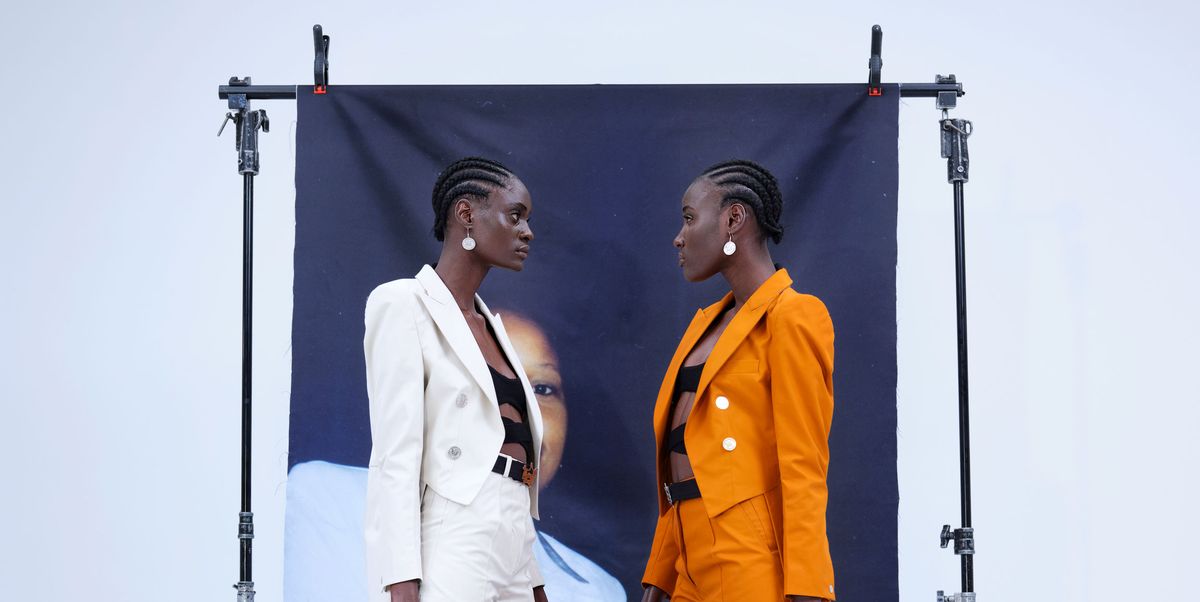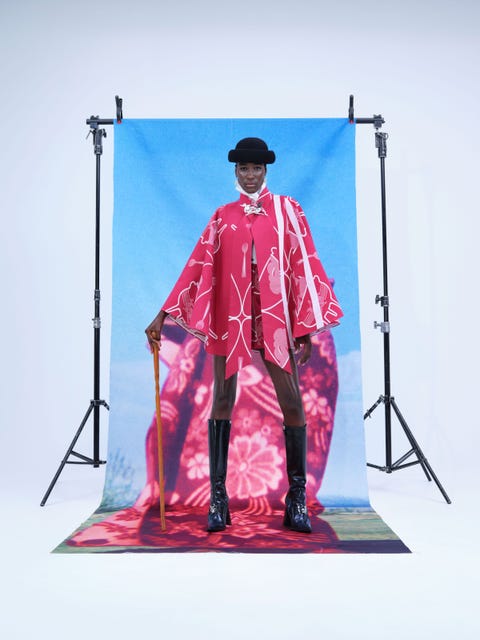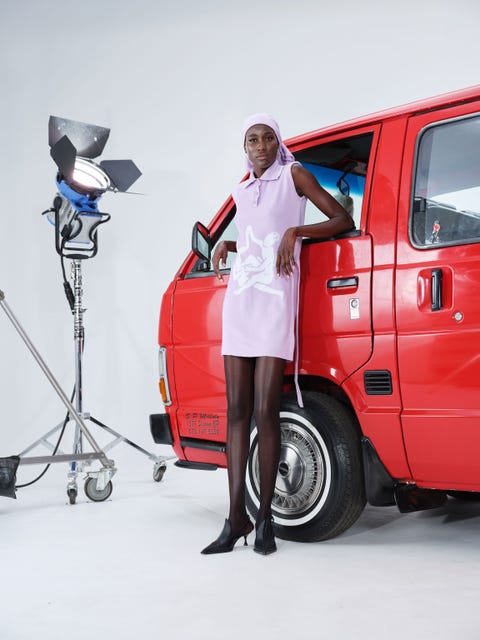Products You May Like
Not long ago, the South African designer Thebe Magugu consulted a local healer who “reads” bones and other objects in the same way someone might read tea leaves. Magugu requested she ask the ancestors what was next for him. But before she could respond, he stopped her: “It made me too nervous, for some strange reason.” Magugu couldn’t yet know that he was on the brink of creating one of his most personal collections to date. Frazzled by the demands of modern life, he temporarily left his home in Johannesburg for the city of Kimberley—where he grew up devouring international fashion magazines—and rewound the cassette of his life. “I was feeling so bogged down,” he says. “I wanted to look at something that gave me joy. And that was my family.”
His spring 2022 Genealogy collection, shown in Paris, drew on the “incredible silhouettes” and “major shapes” his mother, aunt, and grandmother used to wear, and he posed his models in front of backdrops of old family snapshots. While past shows have engaged with social and political issues in his home country, from femicide to apartheid, “this is one of my favorite collections, because it’s personal,” he says. “It looks like me and my family. The collections in the past have always been observations of other people; it’s always been quite external.”
Growing up, he got the impression that “fashion can only happen in the established capitals.” But Magugu, who became the first African designer to win the LVMH Prize in 2019, has built a thriving brand and a creative community in Johannesburg. His work shows a nuanced vision of South Africa, pushing back on the external pressure he says he’s sometimes felt to depict it as a utopia. “People are attracted to the brand because it’s having a new conversation,” he says, “introducing people to stories, situations, or ideas that aren’t spoken about [much].”
The fashion establishment “sometimes comes to Africa, picks up an image or two, puts it on a moodboard, and is on its merry way,” he adds. “But I think now more than ever, people are sitting up in their seats to engage with Africa, not just look at it from a distance and pick up a reference.” And the talents he works with, whether it’s the graphic designer and illustrator Phathu Nembilwi or that aforementioned healer—whose bone compositions Magugu photographed for a print in his fall 2021 collection—receive a cut of sales, mostly via royalties. It’s part of his mission of “properly empowering people” rather than paying them in exposure. “We’ve heard exposure too many times,” he says. “It’s the most frustrating word.”
This article appears in the February 2022 issue of ELLE.
This content is created and maintained by a third party, and imported onto this page to help users provide their email addresses. You may be able to find more information about this and similar content at piano.io


